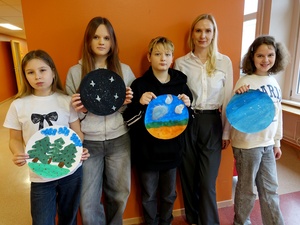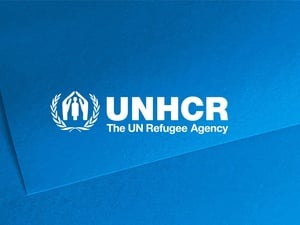UNHCR shares recommendations and calls for shared responsibility to strengthen the protection of unaccompanied refugee children
UNHCR shares recommendations and calls for shared responsibility to strengthen the protection of unaccompanied refugee children

UNHCR, the UN Refugee Agency, in line with its mandate to protect refugees and the 1951 Geneva Convention relating to the Status of Refugees, has issued a series of recommendations addressed to the state and regional authorities of the Canary Islands aimed at reinforcing the protection of unaccompanied refugee children, within the framework of the recent ruling by the Spanish Supreme Court. In her communication to the authorities, UNHCR’s Representative in Spain, Grainne O’Hara, emphasized the importance of effective coordination between the relevant bodies to ensure the best interests of the child as the primary consideration in all actions concerning these children, safeguard their right to seek asylum, and ensure their well-being throughout all stages of the asylum procedure.
Over the past few years, UNHCR has repeatedly expressed its concern regarding the situation of unaccompanied children arriving in the Canary Islands, particularly those with international protection needs who have been forced to leave their countries fleeing wars, conflicts, violence, abuse, exploitation, and other grave human rights violations. Between February and April 2024, UNHCR conducted 576 interviews with children staying in 37 youth centers in the Canary Islands, aimed at understanding their profiles and protection needs. The information collected through these interviews revealed that at least 55% of the interviewed children may be in need of international protection. While this percentage cannot be extrapolated to the total number of children arriving in the Canary Islands, it reflects the urgent need to channel a significant number of them through an agile, effective and child-friendly asylum process.
“The protection of asylum-seeking children is an absolute priority for UNHCR. Refugee children have endured traumatic experiences, and it is our responsibility to ensure that they receive a response tailored to their needs, guaranteeing their right to international protection,” stated Grainne O’Hara.
Among the main recommendations from UNHCR are the following:
- Information on the rights of asylum-seeking children: All children must receive clear and child-friendly information about their right to seek asylum and the international protection procedure in Spain.
- Training and awareness: UNHCR recommends that professionals and competent authorities receive specialized training in international protection and child friendly protection procedures to ensure that interventions meet the specific needs of asylum-seeking children. This should include an approach guided by age, gender, and diversity considerations to ensure the proper identification and response to their needs.
- Assessment of the best interests of the child: It is recommended that tools be developed to assess the best interests of each child, taking into account their international protection and specific needs, any particular risks they face, and to ensure adequate interventions and child-friendly solutions.
- Guaranteeing priority access to the asylum procedure: UNHCR urges that priority access to child-friendly asylum process be ensured for children, which must include specialized legal assistance and be centered on their needs, capacities and best interests.
- Differentiated and preferential treatment: UNHCR calls for guaranteeing differentiated treatment in accordance with the procedural safeguards foreseen for children, including the preferential resolution of their cases under the three-month urgent procedure.
- Adequate reception and care arrangements: It must be ensured that children receive stable and continuous accommodation that allows for their physical, mental, and social development, ensuring their social and cultural integration. Additionally, it is essential that children have access to family-based care arrangements in line with their best interests, as well as child-friendly health services, psychological and emotional support, and protection measures against violence, exploitation, and human trafficking.
- Family reunification: UNHCR emphasizes the importance of supporting the search for family members and facilitating family reunification, when it is in the best interests of the child.
- Solutions: UNHCR recommends seeking alternative and lasting solutions for all unaccompanied and separated children, including those who do not need international protection, through an individualized assessment of their best interests.
In accordance with its mandate, UNHCR reiterates the importance of ensuring a comprehensive and appropriate response for asylum-seeking children currently in the Canary Islands. This includes a coordinated approach between the competent authorities and civil society to ensure that the rights of children are respected and that they receive the protection they need.
In this regard, UNHCR’s Representative in Spain reaffirmed her firm commitment to cooperation and joint work to ensure an effective and coordinated humanitarian response. “It is crucial that we work together to provide refugee children with the support needed to overcome the effects of the persecution and violence they have suffered, both in their countries of origin and during their journey to Spain. Every child deserves to start a new life in safety and dignity,” concluded O'Hara, offering UNHCR’s full cooperation in this process.
For more information, please contact:
In Spain: Paula Barrachina Esteban, +34675513544, [email protected]








